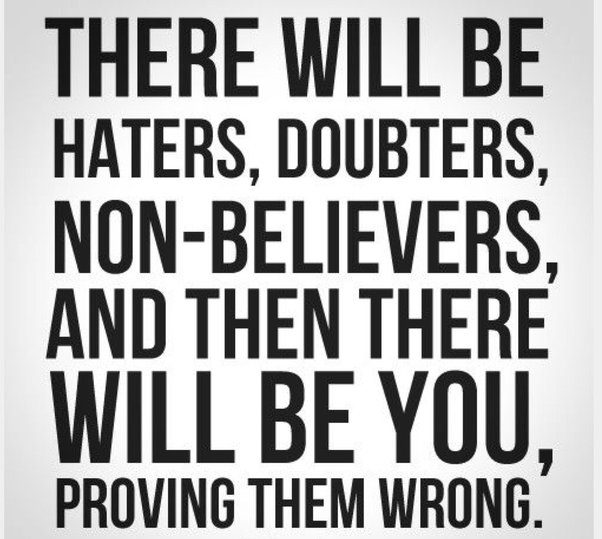‘There will be haters, there will be doubters, there will be non-believers, and then there will be you proving them wrong.’
Naysayers are part of life; they say nay to whatever you are trying to do. Don’t get too bothered about naysayers because that is their nature; there is nothing you can do about them, doubters doubt. How you respond is the one thing you can control about people doubting your dreams and aspirations. Success is the best revenge; shock them with your success and never stay satisfied; stay hungry, and you will be fine. Ignore the naysayers, focus on your goals, find your yaysayers, and become a better version of yourself. When you realize that people doubt you not because of you but it is more about them. Naysayers project their fear and insecurities to feel better about themself and their low-level thinking.
“First they ignore you, then they laugh at you, then they fight you, then you win.” – Mahatma Gandhi
